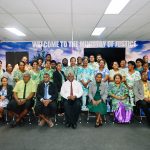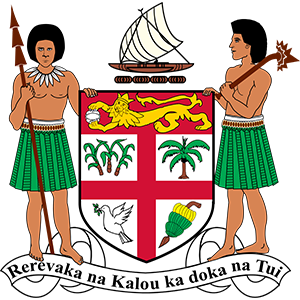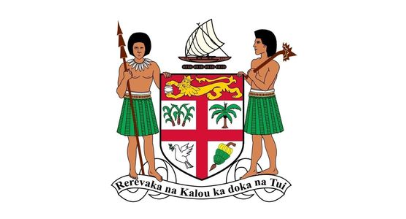
MINISTRY OF JUSTICE COMMEMORATES RATU SUKUNA DAY AT SUVAVOU HOUSE
May 30, 2025
MINISTERIAL STATEMENT ON THE ICJ ADVISORY OPINION ON THE OBLIGATION OF STATES WITH RESPECT TO CLIMATE CHANGE DELIVERED ON 23 JULY 2025
August 6, 2025MINISTRY OF JUSTICE
HON. SIROMI TURAGA
MINISTER FOR JUSTICE
STATEMENT BY THE HON MINISTER FOR JUSTICE
RATU SUKUNA DAY CELEBRATIONS CLOSING SPEECH- NASINU TOWN COUNCIL
DATE: Friday, 30 May 2025
SALUTATION
The Chairman of Nasinu Town Council, Mr. Felix Magnus,
The Special Administrators,
Proud residents of Nasinu Town,
Ladies and gentlemen,
Ni sa Bula Vinaka, Namaste and a very good afternoon to you all.
- I would like to begin by acknowledging past and present, the Vanua Vakaturaga i Naivisere vua na Gone Turaga na Qaranivalu whose ancestral land is home to this municipality of Nasinu.
- I am indeed honoured to have been extended the invitation to be here amongst you today to commemorate and celebrate the life of one of Fiji’s most influential historical figures, Ratu Sir Josefa Lalabalavu Sukuna— and to deliver the closing address for what has been a meaningful festive celebration.
- Ratu Sir Lala Sukuna remains one of the most influential figures in Fiji’s history. A symbol of visionary leadership, resilience, and patriotism, his impact on our nation’s political, social, and economic development is still very much alive today.
- From birth, Ratu Sukuna was destined for greatness. As a member of the Tui Kaba clan, he was deeply rooted in tradition and service. His upbringing instilled in him a profound sense of duty to his people, which later flourished through his military service—a defining chapter that honed his leadership skills and deepened his understanding of the broader global and colonial context of his time.
- Upon his return to Fiji, these experiences propelled him into a remarkable career in public service and politics. Ratu Sukuna envisioned a Fiji that respected tradition while embracing progress—a vision that continues to inspire your Coalition Government today.
- Though he passionately advocated for the rights and welfare of the I Taukei people, Ratu Sukuna also championed unity across ethnic lines. He saw the strength in our diversity and understood that national cohesion was essential for lasting peace and development.
- His vision was ahead of its time. It laid the groundwork for many of the institutions and values we uphold today. It is only right, therefore, that we dedicate a day on our national calendar to honour his enduring legacy—a legacy of service, leadership, and unity.
- But while this celebration is important, we must ask ourselves: is it enough? I commend the organisers, educators, and parents who have involved our children in today’s programme. Our young people must know the story of this great nation and the heroes who helped build it.
- I was especially inspired by the student orators today. You spoke with confidence, grace, and understanding. You have made your parents and your town proud. The question now is—what happens after today? How do we ensure that Ratu Sukuna’s legacy continues to guide future generations?
- My answer is simple: let us emulate him. Let us strive, each in our own way, to live a life of service. We may not all achieve what Ratu Sukuna did, but in the way we treat others, carry ourselves, and serve our communities, we can reflect his values and his vision.
- I commend the Nasinu Town Council for setting an excellent example in this regard. Your “Hands Across Nasinu” initiative is a powerful testament to community-driven action—tackling social issues like drugs and littering and promoting cleanliness and civic pride. These acts of service honour the very essence of what Ratu Sukuna stood for.
- To live a life of service is to dedicate oneself to a cause greater than personal interest. It means choosing compassion over convenience, justice over comfort, and unity over division. True service is not just about doing good—it is about becoming good. It is about being present for others, lifting those in need, and planting seeds of hope.
- This is the heart of Ratu Sukuna’s legacy—a man who served not for power, but for purpose, who led with humility, courage, and unwavering dedication. His contributions continue to shape the institutions that serve our people today.
- In closing, I leave you with the words of United States President John F. Kennedy: “Ask not what your country can do for you—ask what you can do for your country.”
May God bless Fiji, and may He bless you all.
Vinaka saka vakalevu.





